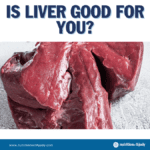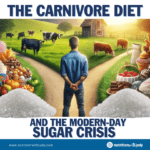

The Carnivore Diet for Seniors


Nearly 95% of adults 60 years or older have at least one chronic condition. Another staggering statistic is that 89% of adults 65 years or older are currently taking prescription medications. Chronic illness and high prescription medication costs are prevalent issues for all of us but even more so for our seniors. Our elderly community deserves better.
The carnivore diet, with its focus on high-quality animal products, is attracting individuals from all walks of life, including our senior community. This way of eating is not just a trend; it’s a health-focused journey that resonates with many, including seniors looking for sustainable wellness solutions.
One inspiring example is a woman celebrating her 80th birthday, thriving on a carnivorous lifestyle. Her journey into this diet echoes the experiences of many others, such as Phil Escot, who found significant relief from autoimmune illnesses through a ketogenic carnivore diet, gaining unprecedented mobility and wellness in his later years. We’ll go more in-depth into these incredible success stories later in the article.
The carnivore diet’s adaptability makes it suitable for seniors, addressing various health challenges from physical mobility to mental well-being. It’s a testament to the diet’s potential in enhancing quality of life, regardless of age. Let’s take a closer look at why our senior community should try this way of eating.
What Is the Carnivore Diet?
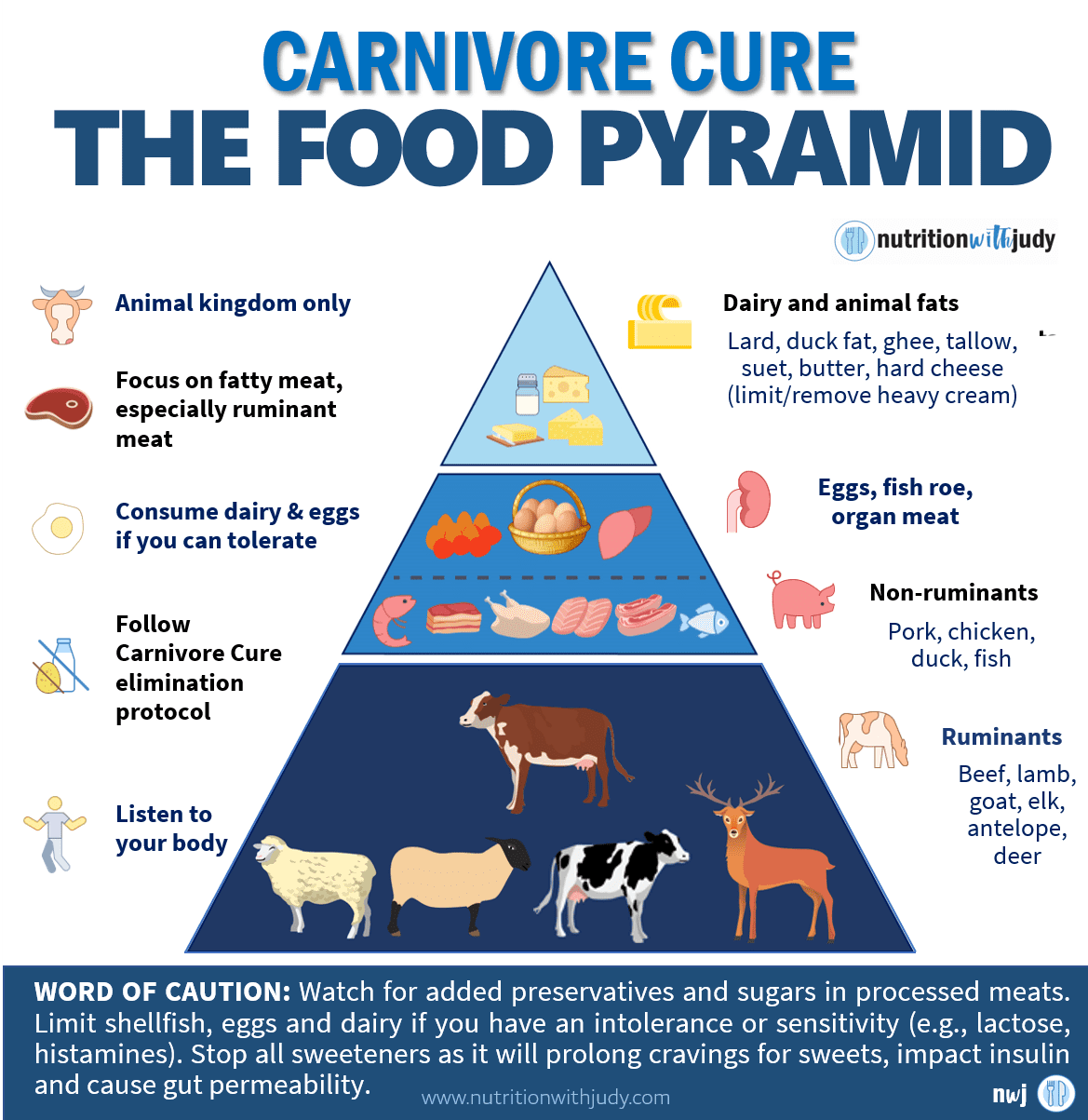

The carnivore diet, centered on animal-based foods, offers a variety of adaptations to suit individual health objectives and preferences. Here’s a glimpse into the diverse iterations of this diet:
- Beef-Only Carnivore Diet: Primarily featuring beef, this variant is ideal for simplicity and is effective in elimination diets, particularly beneficial for those with autoimmune or chronic health concerns. Starting with this diet can be a strategic choice for health support or remission. However, for long-term sustainability and nutritional balance, it’s advised to gradually incorporate a range of meats.
- Lion Diet: A more stringent version, the Lion Diet includes only ruminant meats, salt, and water. It’s often the starting point in elimination protocols, allowing for a potential gradual reintroduction of other meats. This diet is especially suitable for individuals focusing on autoimmune and gut healing.
- Nose-to-Tail Carnivore Diet: This approach encourages consuming every part of the animal, including organ meats, to achieve a broader nutrient profile. However, caution is advised for those with certain liver conditions, as excessive consumption of organs such as liver and kidney can lead to nutrient imbalances, such as vitamin A toxicity.
- Meat-Only Carnivore Diet: Expanding to include all types of muscle meat from the animal kingdom, this diet excludes organ meats, dairy, and eggs. It’s an ideal foundation for those seeking an elimination diet and are certain of their tolerance for various muscle meats.
- Zero-Carb Carnivore Diet: Emphasizing foods with minimal to no carbohydrates, this diet incorporates dairy, eggs, and all meat types, focusing on meat and animal fats. Seasonings may be included for those without autoimmune or chronic health issues and who tolerate dairy and eggs.
- Carnivore Keto Diet: This low-carb, high-fat regimen combines the ketogenic diet principles with the carnivore approach. It mimics fasting effects while incorporating low-toxicity keto options such as avocados and coconut oil. It’s suited for individuals with good metabolic health and those who have resolved or nearly resolved chronic health issues.
- Carnivore-Ish Keto Diet: Offering more flexibility, this variation includes additional ketogenic elements while maintaining a primary focus on animal-based foods. It’s suitable for those with stable metabolic health and no food addiction issues, incorporating alternative keto sweeteners, some nuts, and other keto varieties, yet remaining predominantly meat-centric.
- Animal-Based Diet: A broader version of the strict carnivore diet, it centers on animal products but also allows for the inclusion of fruits, honey, and raw dairy. This diet has been observed to be effective primarily in metabolically flexible individuals and elite athletes in our clinical practice.
What Are the Benefits of the Carnivore Diet?
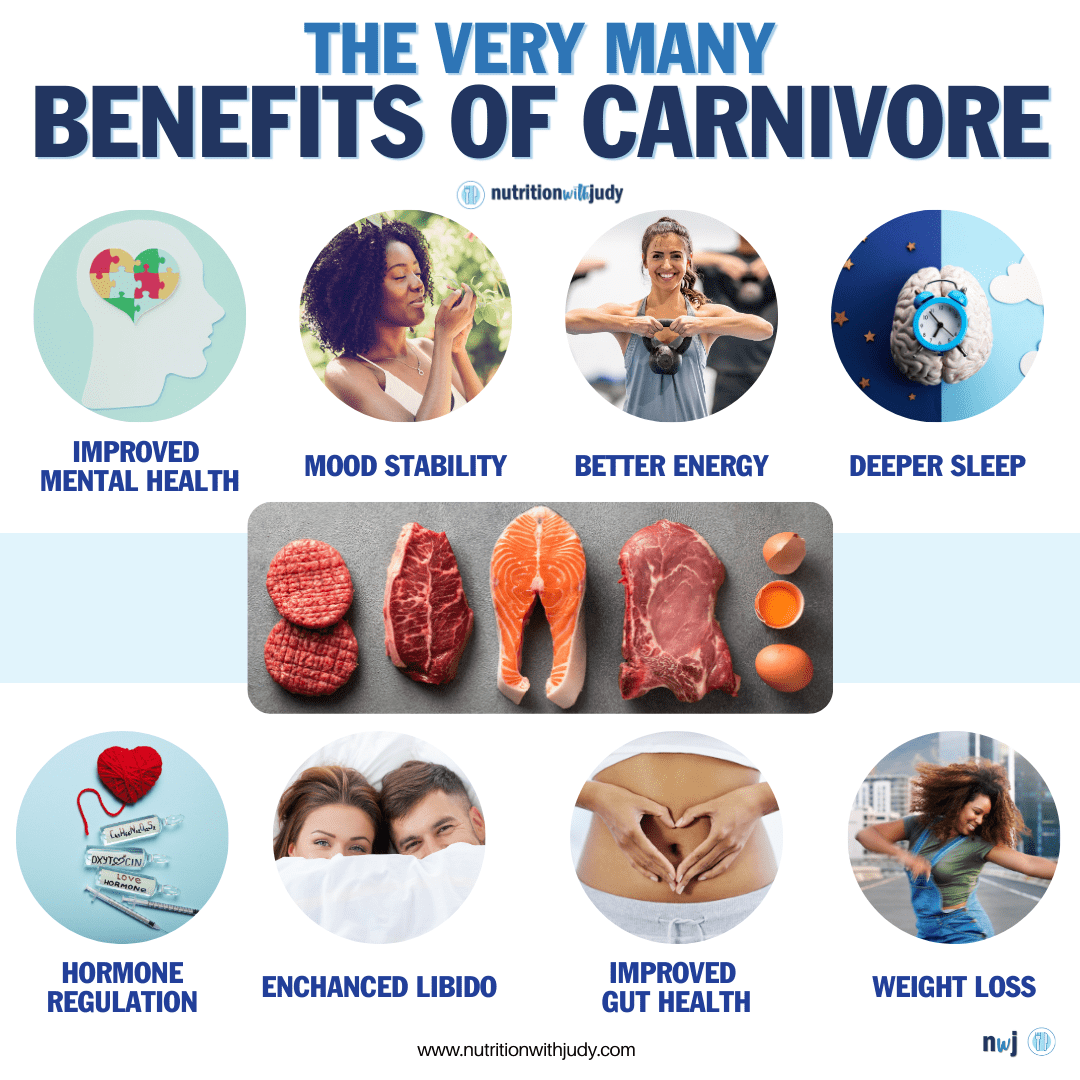

The carnivore diet, centered around animal-based foods, has garnered significant attention for its array of health benefits. This diet is not just a nutritional approach but a transformative lifestyle, offering comprehensive health advantages.
- Mental Health Benefits: One of the most profound impacts of the carnivore diet is on mental health. Individuals have reported significant improvements in mood, with some experiencing complete remission from conditions such as depression. This diet has helped individuals break free from the love-hate relationship with food, offering a newfound sense of freedom and well-being.
- Autoimmune and Chronic Health Issues: The carnivore diet is notably effective for those dealing with autoimmune diseases and chronic health conditions. Individuals have reported remarkable improvements in their symptoms and overall health.
- Anthropological Perspective: From an evolutionary standpoint, the diet aligns with our ancestral eating patterns. The preference for fatty meat by our ancestors supports the idea that a carnivorous diet is not only natural but also beneficial for human health.
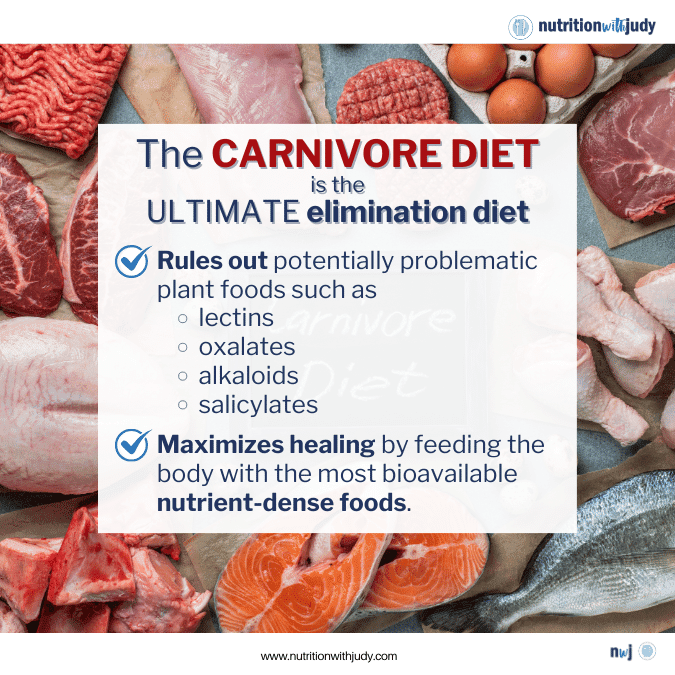

- Food Sensitivities and Elimination Diet: The carnivore diet serves as an excellent elimination diet, helping people identify and manage food sensitivities. It is a practical approach for those who find conventional food sensitivity tests unreliable. By focusing on a meat-based diet, individuals can discern how different foods impact their health and well-being.
- Addressing Nutrient Deficiencies and Excess: The diet is ideal for tackling both undernutrition and nutrient excess. It provides a high-fat, meat-only approach that can be particularly beneficial for those struggling with insulin resistance, gut issues, autoimmune diseases, and even mental health imbalances. It addresses the common issue of nutrient-poor diets prevalent in modern eating habits.
- Cardiovascular Health and Insulin Resistance: The carnivore diet also contributes positively to cardiovascular health and managing insulin resistance. Discussions with cardiologists and experts have shed light on how a meat-centric diet can impact heart health positively, challenging conventional concerns about cholesterol and heart disease.
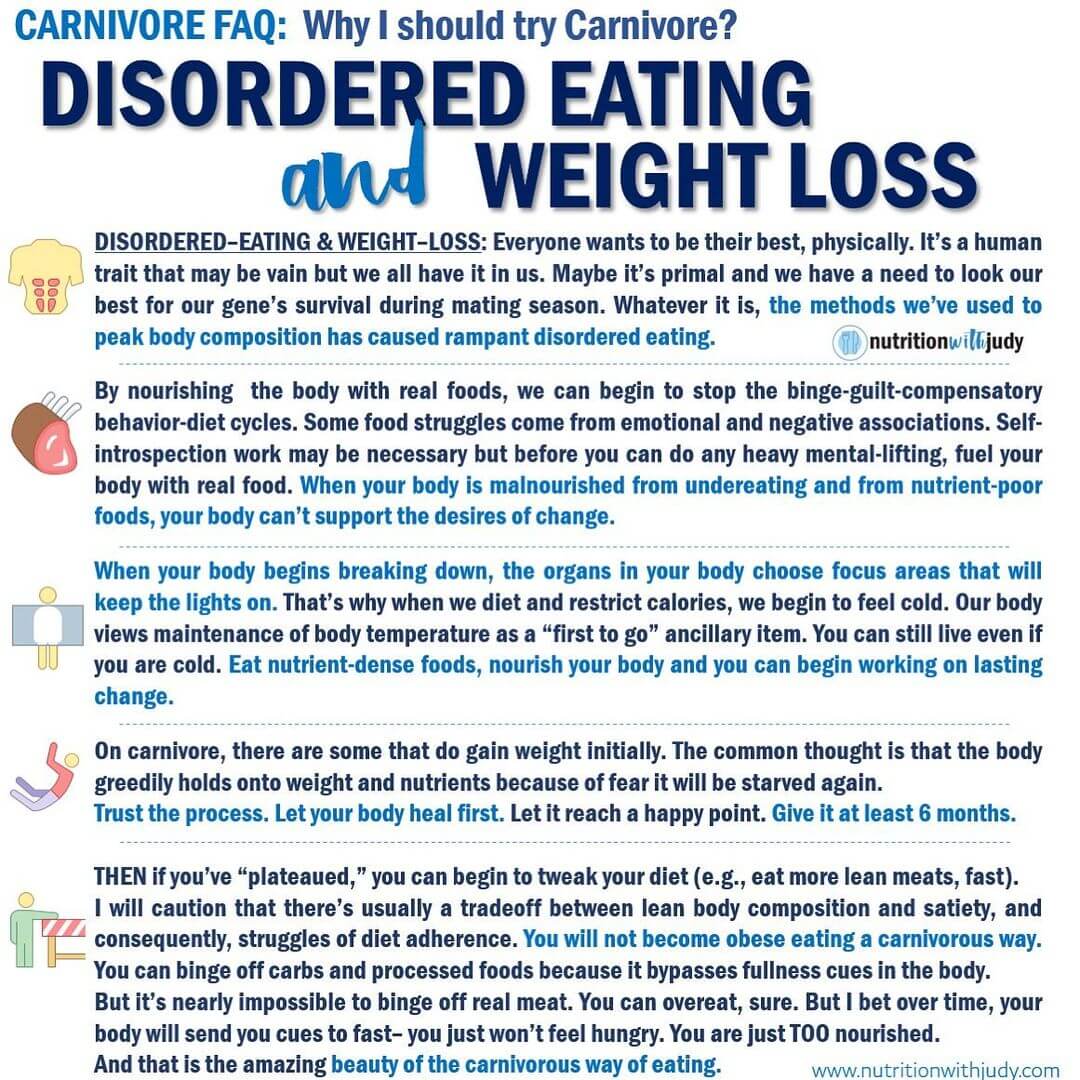

- Weight Management and Eating Disorders: For individuals struggling with weight management and eating disorders, the carnivore diet has been a game-changer. It has provided a path to healthier weight ranges and helped in overcoming eating disorders, leading to a healthier relationship with food and body image.
The carnivore diet is more than just a dietary choice; it’s a path to holistic health, addressing a range of physical and mental health issues. Its benefits are wide-reaching, from improving chronic health conditions and mental health to aligning with our ancestral dietary patterns and managing food sensitivities. It offers a unique approach to nutrition, focusing on meat-based, high-fat diets that cater to various health needs, making it a compelling choice for those seeking to enhance their overall health and well-being.
Why Seniors Should Try the Carnivore Diet


The carnivore diet, emphasizing animal-based foods, offers numerous benefits, particularly for the elderly. This diet aligns with natural human dietary needs, as evidenced by ancestral eating patterns, and addresses various age-related health concerns. Here’s a comprehensive summary of why elderly adults should consider the carnivore diet:
- Improved Mobility and Reduced Autoimmune Symptoms: Elderly individuals often face mobility challenges and autoimmune conditions. The carnivore diet has shown remarkable results in improving mobility and reducing symptoms of autoimmune diseases.
- Enhanced Protein Intake for Muscle and Bone Health: As we age, maintaining muscle mass and bone density becomes crucial. The carnivore diet, rich in proteins and fats, supports these needs effectively. It helps prevent conditions such as sarcopenia and osteoporosis, common in older adults due to insufficient protein intake.
- Management of Metabolic Diseases: The elderly are often at a higher risk of metabolic diseases such as type 2 diabetes and high blood pressure. A meat-based diet, being nutrient-dense and bioavailable, can be instrumental in managing these conditions, providing a viable alternative to standard diets that may not address these issues adequately.
- Tailored Nutritional Needs: The carnivore diet allows for personalization to meet individual health requirements. Seniors with various health challenges such as insulin resistance, gut issues, mineral imbalances, or mental health concerns can adapt the diet to their specific needs, making it a versatile dietary choice.
- Heart Health and Insulin Resistance: Concerns about blood pressure and heart disease are prevalent among the elderly. The carnivore diet, through various expert opinions and clinical findings, has shown potential in positively influencing heart health and managing insulin resistance, offering a promising option for seniors concerned about cardiovascular health.
- Mental Health Benefits: Mental health issues such as depression and anxiety can affect the elderly significantly. The carnivore diet has been noted for its positive impact on mental health, helping individuals overcome such challenges and improve their overall quality of life.
- Simplicity and Convenience: For many elderly individuals, the simplicity of the carnivore diet is appealing. It eliminates the need for complicated meal planning and preparation, making it a practical and manageable option for seniors.
- Digestive Health: The diet’s focus on animal products can be easier to digest for some seniors, especially those with compromised digestive systems or food sensitivities.
- Nutrient Density: Animal products are rich in essential nutrients such as B vitamins, iron, and omega-3 fatty acids, which are crucial for maintaining health in older age.
- Reduced Inflammatory Responses: The diet’s elimination of certain food groups known to cause inflammation can lead to overall reduced inflammatory responses in the body, beneficial for managing chronic pain and arthritis, common in the elderly.
The carnivore diet offers a range of benefits tailored to the needs of elderly adults, from improved mobility and mental health to better management of metabolic diseases and heart health. Its adaptability and focus on nutrient-dense foods make it a viable option for seniors seeking a healthful and simplified dietary approach.
Carnivore Diet for Seniors Success Stories
Welcome to our special feature on the transformative impact of the carnivore diet in the lives of seniors. In the following series, we dive into heartwarming success stories from the elderly community who have embraced the carnivore diet and experienced remarkable health transformations. These interviews shed light on how this diet, centered around high-quality animal products, has not only revitalized their physical health but also brought significant improvements to their mental and emotional well-being.
As our practice works on peer-reviewed scientific literature supporting the efficacy of the carnivore diet, it’s important to share anecdotal accounts as well as our clinical data. From overcoming long-standing health challenges to discovering a newfound zest for life, each story is a testament to the diet’s potential to enhance the quality of life for seniors. Whether it’s regaining mobility, managing chronic conditions, or simply enjoying a more active and fulfilling lifestyle, these narratives are sure to inspire and offer valuable insights into the benefits of the carnivore diet for the elderly. Join us as we explore these incredible journeys of health and rejuvenation.
80 Years Old and Thriving On a Meat-Only Carnivore Diet
We were delighted to revisit the remarkable journey of Mary Fields, who first graced our channel two years ago at the age of 78. Now approaching her 80th birthday, Mary’s story is a celebratory showcase of the carnivore diet’s profound impact on seniors. This interview serves as a beacon of hope and a testament to the diet’s potential for improving health and vitality in older adults.
Mary’s initiation into the carnivore diet in February 2020 marked a pivotal moment in her life. After a lifetime of various diets and struggling with serious health issues such as systemic candida, IBS, chronic fatigue syndrome, eczema, clinical depression, uncontrolled hypertension, and atrial fibrillation, Mary turned to the carnivore diet as a last resort. Remarkably, within months, she experienced significant improvements. Her blood pressure normalized, allowing her to cease all blood pressure medications. The diet also eliminated her eczema, depression, and allergies, bringing her a newfound sense of health and vitality.
This transformative experience with the carnivore diet has led Mary to greet her 80th year with strength and vigor, achieving all her health goals. Her story highlights the diet’s capacity to bring about holistic healing, not just physically but mentally and emotionally as well.
The interview delves deep into Mary’s experiences, discussing the challenges and breakthroughs she encountered. From initial struggles to adapting the diet to her specific needs and overcoming long COVID, Mary’s journey is a profound narrative of resilience and healing. The discussion also touches on the importance of addressing emotional health and stress management, illustrating the interconnectedness of physical health and mental well-being.
Mary’s story is a powerful illustration of the carnivore diet’s effectiveness, particularly for seniors grappling with various health issues. It underscores the diet’s role in not just addressing specific ailments but in enhancing overall quality of life. This interview is a must-listen for anyone interested in exploring the potential benefits of the carnivore diet, especially as they age.
How the Carnivore Diet Resolved 40 Years of Depression and Anxiety
We had the pleasure of speaking with Brett Lloyd as he shared his transformative journey through the carnivore diet. Based in Jacksonville, Florida, Brett, in his 60s, has been following a carnivore diet for over 1500 days. He details his struggle with major depression, anxiety, insomnia, and the positive impact of the carnivore diet on his mental health. Brett’s story highlights the emotional rollercoaster and the serious conversations around healing within the carnivore community.
Throughout the interview, Brett opens up about his personal challenges and the long battle with mental illness, marked by debilitating symptoms and ineffective treatments. He recalls how his life was marred by poor choices, mental health struggles, and a career sabotaged by his condition. Despite being surrounded by mental health professionals, Brett’s depression went unrecognized, leading to years of suffering.
His turning point came with the carnivore diet, which he adopted after hearing about Dr. Jordan Peterson’s and his daughter Mikhaila’s experiences with meat-only diets. Brett’s adoption of this diet marked a significant shift in his mental health, leading to the alleviation of his depression and anxiety symptoms.
Brett emphasizes the role of diet in mental health, discussing how the carnivore diet helped him regain control of his life. He highlights the importance of consistency, the avoidance of trigger foods, and the need to respect individual dietary needs and responses. Brett’s story is a testament to the healing power of dietary changes and the importance of personalized nutrition in managing mental health conditions.
Closing Thoughts On the Carnivore Diet for Seniors
The carnivore diet offers various health benefits, particularly for seniors. This diet emphasizes consuming animal products exclusively, eliminating plant-based foods. With nearly 95% of adults 60 years or older having at least one chronic illness, the carnivore diet helps address holistic health while supporting and reversing numerous chronic conditions. With the ability to reduce medication use, this powerful modality can help seniors live a better quality of life.
For older adults, the carnivore diet can be particularly beneficial. It’s high in protein, crucial for maintaining muscle mass and strength, which naturally decline with age. This diet also simplifies meal planning, focusing solely on animal products, which can be advantageous for seniors seeking straightforward dietary guidelines.
Work With Our Trusted Carnivore Diet Functional Nutritional Therapy Practitioners
The Nutrition with Judy practice is honored to be a trusted carnivore diet practitioner support serving clients from around the globe. We’re passionate about helping our clients achieve root-cause healing in order to lead the best quality of life possible that’s nearly symptom-free. Our team is dedicated to educating our community about the incredible benefits of the carnivore diet. We welcome you to explore our free resources and are always available to support you through personalized protocols. Our Symptom Burden Assessment (SBA) is the perfect starting point for discovering your root cause and is required to work with our team— you can learn more in-depth about this powerful tool here.
Start your root-cause healing journey today and contact us any time with any questions or concerns.
DISCLAIMER: This content is for educational purposes only. While we are board-certified in holistic nutrition and are nutritional therapy practitioners, we are not providing medical advice. Whenever you start a new diet or protocol, always consult with your trusted practitioner first.




